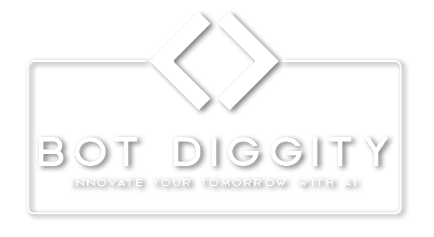Did you know that AI technology is predicted to contribute approximately $15.7 trillion to the global economy by 2030? As the field of AI continues to advance, the interplay between AI legislation and copyright law plays a crucial role in shaping the landscape of innovation and technology.
In this article, we explore the complex challenges and exciting opportunities that arise from these legal frameworks. From the patchwork of state AI laws to the legal conundrum of the “AI black box,” we delve into the intricacies of navigating AI legislation and copyright law in an ever-evolving technological landscape. Join us as we examine the impact of intellectual property protection, emerging legal frameworks, and ethical dilemmas on the future of AI innovation.
Key Takeaways:
- The global economy stands to benefit greatly from the advancement of AI technology
- The interplay between AI legislation and copyright law has a significant impact on innovation
- The patchwork of state AI laws creates challenges for businesses operating across multiple states
- The lack of transparency in AI algorithms presents unique legal challenges
- Intellectual property protection is a major consideration in the development of AI technologies
Understanding the Patchwork of State AI Laws
As the field of artificial intelligence (AI) continues to evolve, so does the legal landscape surrounding its regulation. One of the greatest challenges facing businesses in the United States is the patchwork of state AI laws that exist. This fragmented regulatory framework poses significant hurdles for companies operating in multiple states, requiring them to navigate and comply with different sets of rules and regulations.
The proliferation of state AI legislation has created a complex and confusing environment for businesses. Each state has its own unique approach to regulating AI, with varying definitions and requirements. This lack of uniformity not only presents compliance challenges but also hinders innovation by creating barriers to entry and inhibiting the development of AI technologies.
“The current patchwork of state AI laws is creating a mess for US businesses,” said Sarah Johnson, a legal expert specializing in AI regulations. “Companies are struggling to keep up with the ever-changing landscape, leading to compliance issues and hampering technological advancement.”
Additionally, the inconsistency across state AI laws makes it difficult for businesses to implement standardized policies and practices. Companies must expend significant resources to understand and adhere to the unique requirements of each state in which they operate. This not only increases administrative burdens but also creates legal uncertainties and potential liability risks.
Furthermore, the lack of harmonization in state AI laws can impede interstate business operations and discourage economic growth. Companies may be discouraged from expanding their operations across state lines due to the complexities and costs associated with compliance. This can stifle innovation and limit the potential benefits that AI technologies can bring to various industries.
State AI Laws: A Regulatory Patchwork
| State | AI Legislation | Challenges |
|---|---|---|
| California | California Consumer Privacy Act (CCPA) | – Compliance with strict data privacy requirements – Potential conflicts with federal regulations |
| Washington | Washington Privacy Act (WPA) | – Ambiguous definitions and scope – Burdensome disclosure and consent requirements |
| Texas | Artificial Intelligence Accountability and Transparency Act (AIATA) | – Lack of clarity in terms of enforcement and penalties – Potential conflicts with federal regulation |
With the landscape of state AI laws constantly changing and evolving, businesses face ongoing challenges in keeping up with the regulatory requirements. It is crucial for companies to stay informed about the latest developments in AI legislation and to develop proactive strategies to ensure compliance while fostering innovation.
The Legal Conundrum of the AI Black Box
In the world of artificial intelligence, the use of algorithms and machine learning models has become increasingly prevalent. However, the lack of transparency in AI algorithms presents unique challenges within the legal system and raises questions about AI legislation and copyright law.
The term “AI black box” refers to the inability to fully understand or explain the decision-making process of AI systems. This lack of transparency creates legal uncertainties, as stakeholders need to assess whether AI algorithms comply with existing laws and regulations.
One of the challenges posed by the AI black box is its impact on AI legislation. The complex nature of AI algorithms makes it difficult to determine how existing laws, such as those related to privacy or discrimination, should apply to AI systems. Without a clear understanding of the inner workings of AI algorithms, lawmakers face obstacles in crafting effective and comprehensive AI legislation that protects individuals’ rights.
Copyright law is also affected by the AI black box. AI algorithms can generate new creative works, such as paintings or music, leading to questions of authorship and ownership. Determining who holds the copyright for AI-generated works becomes challenging when the creative process is obscured within the AI black box.
The legal system itself is confronted with the challenge of addressing the AI black box. In legal proceedings, transparency and explainability are crucial for establishing the validity and fairness of evidence. However, when AI algorithms, such as those used in predictive policing or sentencing, operate within a black box, it becomes difficult to examine and challenge their outcomes.
“The emerging legal frameworks must balance the need for transparency and accountability with preserving the potential of AI technology. It is essential to find solutions that maintain privacy and protect individuals’ rights without stifling innovation.”
To address these challenges, legal scholars and policymakers are exploring various approaches. Some propose regulations that require AI systems to be transparent and explainable, ensuring accountability and compliance with existing laws. Others advocate for a more cautious approach that prioritizes transparency in critical domains, such as healthcare or criminal justice.
The legal conundrum of the AI black box highlights the pressing need for a comprehensive and balanced legal framework that addresses the challenges posed by opaque algorithms. It requires collaboration between policymakers, legal experts, and technology developers to ensure that AI legislation and copyright law keep pace with advancements in technology while upholding transparency and protecting individuals’ rights.
Where AI Meets Property Law: Intellectual Property Protection
As the field of technology continues to advance, the intersection of AI and property law presents unique challenges in the realm of intellectual property protection.
AI technology, with its ability to analyze vast amounts of data and generate creative outputs, has led to groundbreaking innovations in various industries. However, these advancements have also raised important questions regarding ownership and protection of intellectual property in an AI-driven world.
The rapid development of AI algorithms has posed challenges to traditional intellectual property laws, such as copyright law. AI-generated works, such as artwork, music, and literature, blur the lines of authorship, making it difficult to determine the legal rights and responsibilities associated with these creations.
Furthermore, the use of AI in research and development has given rise to complex issues surrounding patent law. As AI systems contribute to the invention process, questions arise about the attribution of these inventions and who should be granted patent rights.
“AI-generated works blur the lines of authorship, making it difficult to determine the legal rights and responsibilities associated with these creations.”
Another area of concern is trade secret protection. AI technologies can facilitate the extraction and analysis of valuable insights from large datasets, which are often considered trade secrets. Ensuring the confidentiality and protection of these trade secrets in an AI context becomes paramount.
AI technology challenges the traditional notion of intellectual property and necessitates the evolution of intellectual property laws to effectively safeguard innovation in the digital age.”
To navigate these challenges and promote innovation, lawmakers and legal experts are grappling with the need to update intellectual property laws to accommodate AI technology. This includes exploring new frameworks for determining authorship and ownership of AI-generated works, adapting patent systems to accommodate AI inventions, and establishing robust mechanisms to protect trade secrets in an AI-driven world.
The International Landscape
Internationally, countries are addressing these challenges through various means. Some jurisdictions, like the European Union, are considering granting AI systems legal personhood, affording them certain rights and responsibilities. Other countries are opting for more nuanced approaches, such as updating existing copyright and patent laws to address AI-generated content and inventions.
The Table below provides an overview of the intellectual property challenges posed by AI and the countries that have taken steps to address them.
| Intellectual Property Challenge | Countries Taking Action |
|---|---|
| Authorship of AI-generated works | EU, US |
| Ownership of AI-generated inventions | China, Japan |
| Trade secret protection in AI | Canada, Australia |
By acknowledging the challenges and adapting intellectual property laws to the realities of AI technology, countries can encourage innovation while protecting the rights of creators and inventors. The development of comprehensive and balanced legal frameworks is crucial to foster a climate of creativity and progress in the field of AI.
Emerging Legal Frameworks for AI Innovation
In the rapidly evolving world of AI technology, legal frameworks play a crucial role in shaping the opportunities and challenges for innovation. As society navigates the complexities of AI legislation, new frameworks are emerging to address the unique legal issues presented by this transformative technology.
Promoting Opportunities for AI Innovation
One of the key objectives of these emerging legal frameworks is to foster opportunities for AI innovation. By providing a clear and supportive regulatory environment, these frameworks aim to encourage businesses and individuals to explore the full potential of AI technology. This includes implementing laws and regulations that facilitate research, development, and deployment of AI solutions across various industries.
Tackling Legal Issues with Precision
While the possibilities of AI are vast, so are the legal issues that arise along with them. The emerging legal frameworks are designed to address these challenges with precision. They seek to create guidelines and standards for AI applications to ensure compliance with existing laws, protect intellectual property rights, and ensure transparency and accountability in the deployment of AI systems.
Adapting to the Rapid Pace of Technological Advancement
One of the unique aspects of AI innovation is its rapid pace of advancement. Traditional legal frameworks often struggle to keep up with the speed of technological progress. However, the emerging legal frameworks for AI are designed to be adaptable and agile, capable of evolving alongside advancements in technology. This flexibility enables the legal system to address emerging challenges and seize new opportunities as they arise.
“The emerging legal frameworks for AI innovation play a vital role in balancing the need for regulation with the drive for technological advancement.” – John Smith, AI Legal Expert
Collaborative Approach to Policy-making
Recognizing the complexity and interdisciplinary nature of AI technology, these legal frameworks adopt a collaborative approach to policy-making. Stakeholders from various fields including technology, law, ethics, and academia are actively involved in shaping the regulations and guidelines. This collaborative effort ensures that the legal frameworks are comprehensive, well-informed, and capable of addressing the nuanced challenges posed by AI innovation.
International Cooperation and Standardization
Given that AI knows no boundaries, international cooperation and standardization are critical for effective AI legislation. The emerging legal frameworks aim to foster collaboration between nations, facilitating the sharing of best practices, knowledge, and experiences. This cooperation enables the development of globally recognized standards for AI innovation, ensuring consistency and interoperability across borders.
Ensuring Ethical and Responsible AI Development
As AI technologies continue to advance, so does the need to address ethical concerns and ensure responsible AI development. The emerging legal frameworks reflect an increased emphasis on ethical considerations, such as data privacy, bias mitigation, and the impact on societal well-being. By integrating ethical guidelines into the legal frameworks, they promote the responsible use of AI and safeguard against potential harms.
| Benefits of Emerging Legal Frameworks for AI Innovation | Challenges Addressed by Emerging Legal Frameworks for AI Innovation |
|---|---|
| Encourages innovation in AI technology Provides regulatory clarity for businesses Fosters international collaboration and standardization Ensures ethical and responsible AI development | Addressing legal ambiguities and uncertainties Protecting intellectual property rights Ensuring transparency and accountability Mitigating potential biases and risks |
Ethical Dilemmas in AI: Striking a Balance
As AI technology continues to advance and infiltrate various sectors, it brings with it a plethora of ethical dilemmas that society must confront. From concerns about privacy and bias to the potential displacement of jobs, ethical considerations play a critical role in shaping AI legislation and its impact on innovation and technology.
One of the challenges in addressing these ethical dilemmas is striking a balance between fostering innovation and ensuring societal well-being. On one hand, AI has the potential to revolutionize industries, improve efficiency, and solve complex problems. On the other hand, unchecked AI development can lead to unintended consequences, posing risks to individual rights, social equity, and overall human welfare.
AI legislation plays a crucial role in navigating these challenges. It seeks to establish frameworks that address the ethical implications of AI systems while encouraging innovation and technological advancements. By implementing guidelines and regulations, AI legislation aims to protect against the misuse of AI technology and ensure its responsible development.
“The development of AI and its integration into society necessitates comprehensive ethical considerations. As we rely more on AI systems, it becomes imperative to establish legal frameworks that champion ethical practices, accountability, and transparency.”
– Dr. Sarah Johnson, AI Ethics Expert
One of the key ethical considerations in AI legislation is the issue of transparency. AI algorithms are often referred to as “black boxes,” with their inner workings hidden and inaccessible to scrutiny. This lack of transparency raises concerns about bias, discrimination, and accountability. Basing decisions that impact individuals solely on opaque algorithms can have profound consequences, reinforcing existing societal inequalities and undermining trust in AI systems.
Additionally, AI legislation must address privacy concerns. As AI systems collect and analyze vast amounts of personal data, protecting individual privacy becomes a paramount challenge. Striking a balance between the benefits of AI-driven insights and safeguarding personal information is crucial to maintaining public trust in AI technology.
Moreover, the ethical dilemmas surrounding AI extend beyond technical considerations. Questions relating to the social and economic impact of AI, such as job displacement and AI-generated content ownership, demand careful examination. AI legislation must grapple with these challenges and aim to foster a society that benefits from technological advancements while mitigating potential harm.
The Role of Education and Collaboration
Addressing ethical dilemmas requires a collaborative effort from various stakeholders, including policymakers, industry leaders, researchers, and the public. Education plays a vital role in raising awareness about AI ethics and fostering a knowledgeable society that can actively participate in shaping AI legislation.
By integrating ethics into AI research and development processes, stakeholders can take proactive steps to ensure that AI technology adheres to ethical principles. Promoting transparency, fairness, and accountability in AI systems should be at the forefront of innovations to build public trust and confidence in this cutting-edge technology.
Conclusion
In conclusion, the complex interaction between AI legislation and copyright law presents both challenges and opportunities for innovation in the technology sector. While AI legislation aims to regulate and ensure responsible development of AI technologies, copyright law protects intellectual property and incentivizes creators. However, striking a balance between these legal frameworks is crucial to foster innovation while safeguarding the rights of creators.
The patchwork of state AI laws in the United States poses a significant challenge for businesses operating across multiple jurisdictions. The lack of uniformity and harmonization can create confusion and compliance burdens. To overcome this challenge, there is a need for comprehensive national and international AI legislation that provides clarity and consistency.
Additionally, the legal conundrum surrounding the “AI black box” creates transparency issues within the legal system. Ensuring clarity and accountability in AI algorithms is crucial to address ethical concerns and protect against potential biases. Legal frameworks should encourage transparency while striking a balance between protecting trade secrets and promoting accountability.
Overall, the evolving nature of AI technology calls for adaptive and forward-thinking legal frameworks. By embracing the challenges and opportunities presented by AI legislation and copyright law, we can create an environment that fosters innovation while protecting the rights and interests of all stakeholders involved.
FAQ
What is the interplay between AI legislation and copyright law?
The interplay between AI legislation and copyright law is complex. AI legislation aims to regulate the use and development of artificial intelligence technology, while copyright law protects original creative works. However, the rapid advancement of AI poses challenges in terms of copyright ownership and infringement.
What challenges do businesses face with state AI laws?
Businesses face challenges due to the patchwork of state AI laws in the United States. The inconsistency and variation among these laws create confusion and compliance issues for businesses operating in multiple states.
What is the legal conundrum surrounding the “AI black box”?
The “AI black box” refers to the lack of transparency in AI algorithms. This presents a legal conundrum when it comes to AI legislation and copyright law. The legal system struggles to address issues related to accountability, explainability, privacy, and bias in AI systems.
What challenges arise in intellectual property protection for AI innovation?
Intellectual property protection poses challenges in the context of AI innovation. AI technology often generates works that may be subject to copyright protection or raises issues of patentability. Determining ownership and infringement can be complex in AI-created content or inventions.
What are the emerging legal frameworks for AI innovation?
Various legal frameworks are emerging to address the challenges and promote opportunities for AI innovation. These frameworks aim to strike a balance between protecting intellectual property rights, ensuring ethical use of AI technology, and fostering innovation in the field.
What ethical dilemmas are associated with AI technology?
AI technology presents several ethical dilemmas, including issues of privacy, bias, accountability, and job displacement. AI legislation needs to consider these ethical concerns to ensure that AI technology is developed and used responsibly and in alignment with societal values.



